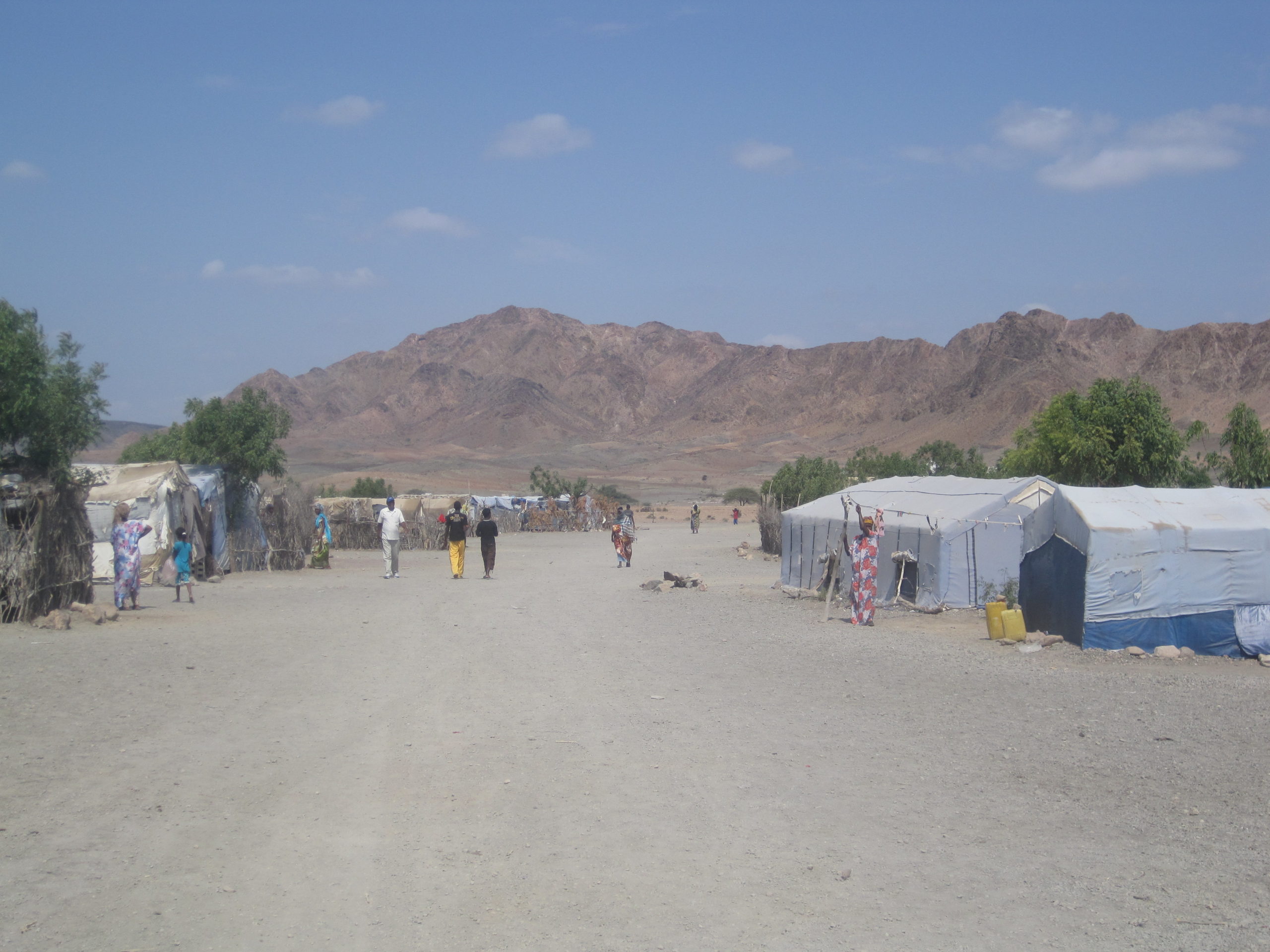*Abiy Ahmed, the prime minister of Ethiopia, who came to power primarily as the result of the Oromo youth protest movement known as Qeerroo, has talked about cultural attitudes behind different communities’ relative success twice in the last two years by comparing the development of Jewish Americans and the underdevelopment of African Americans.Abiy argued that Jews have become prosperous and powerful Americans by forgetting their past oppression, while Blacks have caused their own suffering and underdevelopment by focusing on their past victimization.
The 2019 Nobel Peace Prize winner asserted that American Jews collectively decided to avoid dwelling on their past mistreatment and to look forward to their future achievement. On the contrary, he said, by focusing on their racial oppression and exploitation and by ignoring their future, African Americans have remained at the bottom of U.S. society.
Presumably to try and encourage Oromo to look forward and not backwards, this is a translation of what Abiy said in Afaan Oromo on 30 October 2019 a town hall meeting in eastern Oromia following violence earlier that month:
“70-80 years ago, in the United States, two groups of people were discriminated against: the Jews and the Blacks. The Jewish people used to be tortured, imprisoned, and denied jobs. The Blacks faced the same fate. You know the Germans killed the Jews and many of those who survived fled to America. Israel did not exist then, and they [Jews] were scattered all over the world.
The Jews made a decision as a people: they said ‘yesterday we were tortured, oppressed, and discriminated against. If we merely continue to talk about the past, we won’t go far enough. We need to have a winning vision so that we will be equipped with better knowledge and wealth than the Whites, who have been victimizing us, and then ruled us.’
On the other hand, the Blacks continue to sing, and complain about being oppressed and tortured, saying the Whites did this and that to us. To this day, they [Blacks] have not gotten anywhere. What about the other guys [the Jews]? The media belongs to them; the banks belong to them; everything belongs to them! While sitting there [in the U.S.], they [Jews] protect and support the small country Israel. Every policy of the United States on Arab countries [Middle East] is entirely decided by the Jews because they have so much power.”
The premier also made similar comment in Amharic when he spoke to a group of artists in Addis Ababa on 27 June 2018:
“During the long American system of [racial discrimination], the most victimized segments of the society were the blacks and Jews. Both were tortured, oppressed, imprisoned, and denied the right to work and acquire properties.
The difference is, after the civil rights movement, the songs, poems, films, and dramas of the Jews became forward-looking; they became about conquering the world and economic empowerment.
Blacks, on the other hand, simply lamented about their history of torture, murder, and so on.[audience smile and chuckle]; making the current generation [of blacks] to live in the past. While the Jews made their people live for tomorrow.
Less than fifty years later, Jews became prosperous and powerful while Blacks became freed poor- they are granted freedom, free to sing, but unable to get out of poverty.”
Leaving aside Abiy’s employment of anti-Semitic tropes, did American Jews really develop by looking to their future and forgetting their past? Have African Americans victimized themselves by perpetuating their own underdevelopment through focusing on their past victimization as the prime minster claimed?
To understand the relevance of Abiy’s argument, one needs to understand that the Ethiopian empire-state he leads has a history of colonialism, slavery, terrorism, genocide, and racism against which the Oromo, Sidama, Somali, Qimant, Agew, Wolayta, and others are struggling while narrating their past and present victimization.
In his speeches, the prime minister implicitly discredited the narratives of these colonized and victimized groups in order to rationalize and legitimize the crimes of the Ethiopian government through inventing a false narrative about African Americans.
Being discriminated against in their home countries, Jews began emigrating to the U.S. in the mid-17th century. The first group of Jews came from Brazil and settled in New Amsterdam, New York, in 1654. Most of these Jews were merchants and established businesses in American colonial ports such as New York, Philadelphia, Charleston, and Savannah.
In addition, in the 1840s, German Jews responding to social upheavals began emigrating to the U.S. in significant numbers, and at the beginning of World War One their number reached 250,000. After 1880, pushed out by overpopulation, oppressive systems, and poverty, Eastern European Jews started to emigrate to the U.S..
Between 1880 and 1924, more than two million Jews from locations including Austria-Hungary, imperial Russia, and Romania arrived and settled in the U.S.. Overall, since they were not enslaved in this country, American Jews were able to maintain their history, culture, language, psychology, identity, and religion, which have been the foundation of their survival as a people, as well as the engines of their sociocultural, economic, and political development.

In contrast, beginning in 1619, the ancestors of African Americans were merchandized by European slavers and their African collaborators and forcefully brought to the 13 colonies that later became the U.S.. Overall, between the early 17th and the last decades of the 19th century, European slave traders and their African collaborators sold and transported between 13 and 15 million Africans to the Americas.
African-descendent slaves lived under bondage and terror until 1863-1865, when the system was defeated in the process of the American Civil War. Black people in America were stripped of their identity, culture, history, languages, names, and religions and forced to take those of Anglo-Americans during racial slavery.
After the legal abolition of racial slavery, racial oppression and exploitation continued by another name—segregation or Jim Crow laws—until the mid-1960s. These injustices were enforced by U.S. governments, paramilitary groups such as the White Citizens’ Council, the American States Rights Association, the National Association for the Advancement of White People, the Ku Klux Klan, as well as a white society practiced torture and lynching, which were forms of terrorism. These criminal acts were committed to maintain a racial hierarchy and white privilege.
During racial slavery and segregation, millions of African Americans were not allowed to use the fruits of their labor to accumulate wealth but were forced to enrich the white capitalist class and white society which emerged as a hegemonic world power in the mid-20th century. They suffered in ‘the belly of the beast,” while acting as its backbone and helping to make it the richest and the most powerful country in the world.
They helped build the country through suffering, deprivation, and by working day and night. In the systems of racial slavery, which was an ultimate denial of human freedom, and racial segregation, African Americans were forced to enrich white slave owners, and later white society, and contributed to the development of the U.S. for almost three and a half centuries.
In contrast, American Jews arrived in the U.S. as businesspeople and free workers. In this way they maintained control over their wealth and labor. Despite the fact that they were discriminated against because of their religion and ethnic identity, American Jews were allowed to achieve generational and intergenerational upward mobility by culturally and structurally assimilating into white society through open access to political and economic opportunities because they were not slaves and they were not black. They never faced racial segregation like African Americans in this country.

Formal racial segregation continued in the U.S., mainly in the South through the 1960s; white establishment and society excluded most African Americans from the cultural, political, and economic resources of the country.
During racial segregation, African Americans were terrorized and lynched by terrorist organizations such as KKK, which were allowed by the U.S. federal, state, and local governments to dehumanize and kill Black Americans in order to maintain a racial hierarchy and white privilege. The situation began to shift when African Americans engaged in the Civil Rights Movement and the black liberation struggle to change their deplorable conditions.
Collective grievances of racial slavery and segregation, migration from rural to urban areas, community and institutional building, and the emergence of Black intellectuals and organizations during the first half of the 20th century mobilized Black people to resist oppression and to collectively struggle for their cultural identity, civil rights, and the total transformation of U.S. society so they could achieve true equality. They also struggled to transform American apartheid democracy to a multicultural democracy.
Abiy, because of his ignorance or political opportunism, scoffed at these acts of endurance, defiance, courage, and ultimately liberation. He claimed that African American nationalism has perpetuated the suffering of Black society, when in fact this nationalism has empowered them to begin the process of dismantling U.S. racial discrimination, which denied Blacks equal access to political, cultural, economic, and social opportunities within U.S. society. In reality, Black nationalism and the struggle of African Americans resulted in the passage of the Civil Rights Act of 1964 and the Voting Rights Act of 1965 and subsequent laws.
These laws were great achievements of Black struggle and empowerment.
Realizing that these laws did not change the condition of the Black masses, the revolutionary elements of the Black community struggled to develop the entire community, which was not acceptable to the white establishment. Then, the U.S. government started to use a double-edged policy: First, the white establishment allowed the integration of reformist Black elites into white institutions by providing them some access to economic and political opportunities. Second, the white establishment engaged in the repression of Black revolutionary elites and the Black masses through violence and imprisonment. During this period, revolutionary leaders such as the Reverend Dr. Martin Luther King, Jr. and Malcolm X were assassinated. The former was assassinated in 1968 and the latter in 1965.

The repression of the revolutionary aspects of the Black struggle in the 1960s and 1970s resulted in the creation of the ‘New Jim Crow’. This new system invented the ideology of “colorblindness” and has perpetuated the underdevelopment and victimization of the African American masses. Consequently, racial discrimination, poverty, and police brutality have resulted in a disproportionate Black prison population.
Currently, African Americans represent only 12 percent of the U.S. population, but 33 percent of its prison population (many leaders and activists refer to this prison-pipeline system for Black Americans as “modern day slavery”). In addition, the killing of Blacks by police officers has continued unabated. Blacks are furious and frustrated over the killings of Trayvon Martin, Philando Castile, Breonna Taylor, Ahmaud Arbery, and many others. Recently, the public ‘lynching’ of George Floyd by a white police officer and his three colleagues became a global event.
On 25 May 2020, when a convenience store clerk called 911 and informed four Minneapolis police officers that George Floyd had bought cigarettes with a counterfeit $20 bill, the officers overpowered and brought him under their control. With the support of the three other police officers, Derek Chauvin, a white police officer, put and kept his knee on the victim’s neck for eight minutes and 46 seconds rendering him unconscious and unable to breathe. He died under Chauvin’s knee. This ‘lynching’ took place while the public was videotaping and watching what happened. Across the world, Floyd’s murder ignited protests in which diverse peoples, including whites, demanded police reform and racial equality.
Similarly, the assassination of the famous Oromo singer and activist Hachalu Hundessa on 29 June triggered the Oromia-wide civil unrest that involved killings. The Abiy government used brutal force, killings many and imprisoning thousands, and blocked the internet to suppress the popular uprising of the Oromo. The Oromo diaspora in Europe and North America have also been protesting for many weeks demanding justice for Hachalu and for the imprisoned Oromo political prisoners all over Oromia.
The government used the pretext of the killing of Hachalu to imprison prominent Oromo political leaders and ordinary Oromo nationalists that are members of the Oromo Liberation Front and the Oromo Federalist Congress. Although it is difficult to know at this time exactly how many Oromos were killed and imprisoned by the government, it is estimated that several thousands of Oromos were imprisoned and hundreds of them were killed. Officially, the government claims that it has imprisoned more than 9,000 people from the Oromia Regional state.

Many Oromos believe that Hachalu was murdered because he fiercely criticized Emperor Menelik II—the principal architect of the modern Ethiopian Empire, and the neftegna system he created—during his recent interview on the Oromia Media Network that the Abiy government subsequently shutdown. The neftegna system (also known as the neftenga-gabbar system) was created by Menelik II in the late 1880s, when he established a form of settler colonialism over the Oromo and other peoples.
In other words, the Abyssinian (mainly Amhara) colonialists conquered the Oromo and others by using guns (nafxi) and established a system of controlling them by dispossessing their lands and exacting their labor and agricultural products. The colonial settlers—soldiers , clergymen, and administrators (all known as neftegnas)—exploited gabbars (semi-slaves or serfs) who were coerced to provide them with food, labor, tribute, and tax revenues both in cash and kind.
A ras (a head of a group) or dajazmach (a war leader) could receive 1,000 gabbars, a sub-governor 200 or 300, a fitawrar (another war leader) 300, a kangazmach 150, and ordinary soldiers, depending on their ranks, 20, 15 or 10. The gabbars were also coerced to work on estate farms and building roads and other construction projects. When they failed to pay tributes or services, their children could be sold as slaves. The Amhara colonialists were the main neftegnas, and they also created intermediary neftegnas in Oromo lands and other conquered societies.
They settled their fellow habeshas (Amhara and Tigrayans) in Oromia to perpetuate their dominance. The Amhara-led colonial government claimed absolute rights over three-fourths of the Oromo lands and provided portions of it for its officials and soldiers in lieu of salary. One-fourth of the land was granted to the Oromo collaborators, who became the agents of the neftegna state by engaging in the exploitation and oppression of the Oromo people.
Despite the fact that some changes occurred in the Ethiopian empire-state during 1974, 1991, and 2018, the neftegna of all kinds, including the Amhara, Oromo, and Tigray, who have come to power have continued to protect the same system by promoting the Amharic language in particular and Habasha culture and institutions in general. As the Tigrayan-led neftegna government enriched Tigrayan colonial elites and their OPDO collaborators, the neo-neftegna regime of Abiy Ahmed is engaging in protecting the neftegna institutions, the Amhara language and culture, and enriching the nafxanyas at the cost of the Oromo and other conquered peoples.
The current regime is characterized as the “neo-neftegna” government by its critics because it tries to modernize the Ethiopian state by glorifying Menelik II and other leaders. It is trying to continue the nation-building project initiated by Menelik II and continued by Haile Selassie. Of course, this projected is rejected by the Oromo and other colonized and dominated peoples.

Most Oromo and other colonized peoples consider Menelik II and the institutions he created their enemies. He established the neftegna system and was, according to the account of historian Harold Marcus, involved in the slave trade by merchandising the Oromo and others in order to enrich himself and his collaborators. The participation of the colonialists in the slave trade and in the scramble for Africa during the last decades of the 19th century encouraged habesha elites to associate themselves with European and the Middle Eastern peoples rather than Black Africans. Menelik II terrorized and colonized the Oromo and others with the help of France, Italy, and England to obtain slaves and commodities such as gold, ivory, coffee, musk, hides and skins, and lands.
He also controlled the slave trade (an estimated 25,000 slaves per year in the 1880s), while economic historian Richard Pankhurst said he owned together with his wife 70,000 enslaved Africans. The New York Times reported on 7 November 1909 that Menelik II became one of the richest capitalists in the region and the world: “The Abyssinian ruler had extended the range of his financial operations to the United States, and [was] a heavy investor in American railroads … with his American securities and his French and Belgian mining investments, Menelik [had] a private fortune estimated at no less than twenty-five million dollars”.
Abiy and his collaborators try to create a false narrative about the habesha leaders and the Ethiopian Empire, which the subjugated peoples totally reject.
When Abiy articulates the greatness of Ethiopia and its leaders, the colonized peoples mainly remember about Ethiopian state terrorism, hidden genocide, gross human rights violations, and recurrent famines. Furthermore, for Abiy, racial slavery, segregation, continued racial subjugation, and police brutality that have been brutalizing African Americans for more than five centuries have nothing to do with the underdevelopment and poverty of African Americans.
According to him, American Jews have ignored their historical mistreatment and have become one of the most powerful groups in the U.S. and the world.
His historical and sociological ignorance, intellectual naivety, or political opportunism, and his search for parallel to attack Oromo nationalism and the Oromo national struggle have influenced Abiy to blame African Americans themselves for their continued struggle, rather than to acknowledge the effects of systematic racial repression and forceful societal subjugation.
In fact, African Americans must be admired and respected for struggling with and surviving from all these systems of racial victimization for many centuries rather than be vilified by individuals like Abiy. The Prime Minister should apologize to African Americans and all freedom loving people for his comments. The Oromo and other colonized peoples who are struggling for social justice, self-determination, and democracy can learn a lot from the accumulated experiences of African Americans.
Query or correction? Email us
Follow Ethiopia Insight
Main photo: Prime Minister Abiy Ahmed; 4 June 2019; PMO.
Join our Telegram channel
![]()
Published under Creative Commons Attribution-NonCommercial 4.0 International licence. Cite Ethiopia Insight and link to this page if republished.
We need your support to analyze news from across Ethiopia
Please help fund Ethiopia Insight’s coverage
We Publish News 24/7. Don’t Miss A Story. Click HERE to SUBSCRIBE to Our Newsletter Now!








